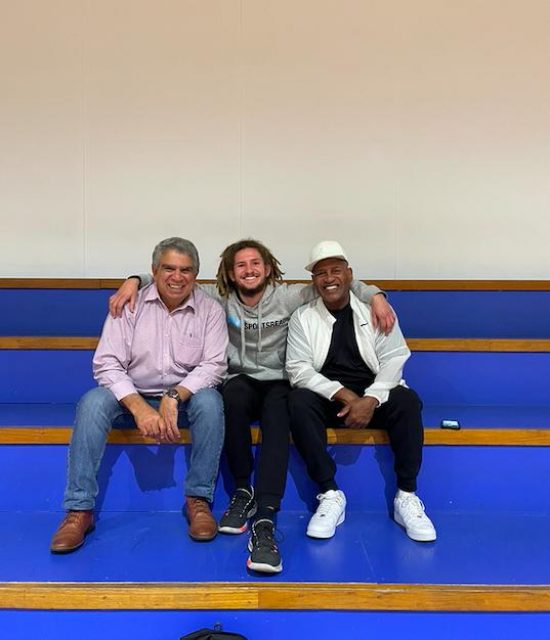
Mentors Bridge the Gap Between Education, Employment & Culture
This National Reconciliation Week, we want to highlight the important role our mentors play in supporting our Indigenous trainees.
The mentors visit the trainees at their place of employment, support them in the workplace and provide a valuable bridge between their workplace, community and culture.
One of our mentors is Proud Yuin man, Glen Ella, who shares his story, and the importance of ensuring Indigenous Trainees are supported throughout their journey through education, personal guidance and culture.
“It’s always good to have an Aboriginal person talking about Aboriginal issues. Some of our Indigenous kids are not really sure of their culture so it’s interesting just having chats to them about where they’ve come from, their families, how much cultural heritage they do know and to start developing that cultural connection with them because as soon as I get these conversations going with my Indigenous trainees, they just want to know more and more,” said Glen.
Glen’s aim as a mentor is to make sure the trainees have everything they need so they can prosper through their traineeship, but also continue to grow and thrive after it.
“I mentor all the Indigenous kids in NSW/ACT and I take my role very seriously. I’m a bit of everything to the kids and my main focus is to make sure they succeed and to complete their traineeship in the easiest way that they can.”
My philosophy is; if I can help any kid no matter what colour they are or where they come from, if I can make sure that they complete on time and their really happy and go on to something better, that’s when I know I have done my job.”
As part of the traineeship model, every trainee has a field officer to guide them and their host employer through the process smoothly. Indigenous trainees have the extra support of a mentor which allows them to connect more on a cultural level.
“We’ve got a lot of support around the trainee and the host employer. Field Officers and mentors frequently check in with the trainee and the host and every single one of us is very passionate about what we do.
It’s important that we make the trainee feel nurtured and so having that connection with them about culture is really important because trainees instantly tend to become more comfortable and at ease.”
Being a mentor and field officer comes with a lot of responsibilities but most of all, it takes a lot of passion. In this role Mentors not only help the trainees with their studies, but also help them with any other obstacles along the way.
“We always encourage people to call if they have an issue and the same goes for our host employers. It might be their first trainee, so we make sure we give them all the support they need.”
All in all, there is nothing I would rather do than be a mentor/field officer. I love connecting with my trainees, I love helping them in any way I can. It’s what I do, it’s what I love.”
Learn more about our Warumilang program and the work we do with Aboriginal and Torres Strait Islander peoples.
We have heaps of amazing Indigenous traineeship opportunities on our jobs board right now! You can see them here.
DATE: 3rd of June 2021
AUTHOR: Dakota McCarthy
IMAGE: Glen Ella with his trainee Lachlan Mayo and AFL SportsReady Master Coach, Cal Bruton
